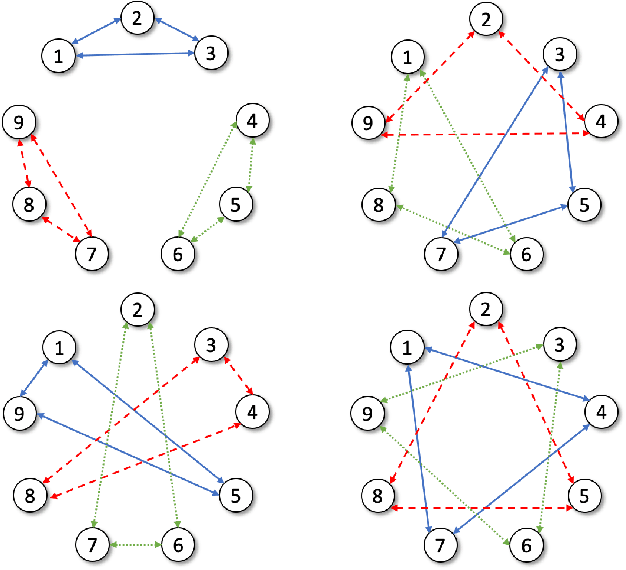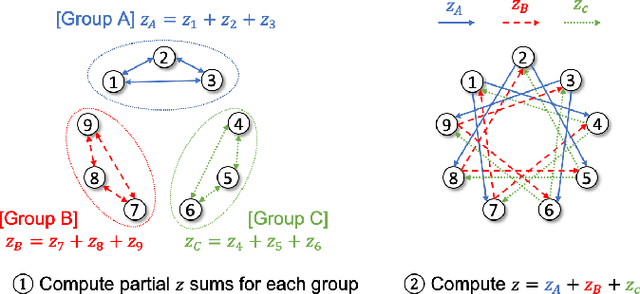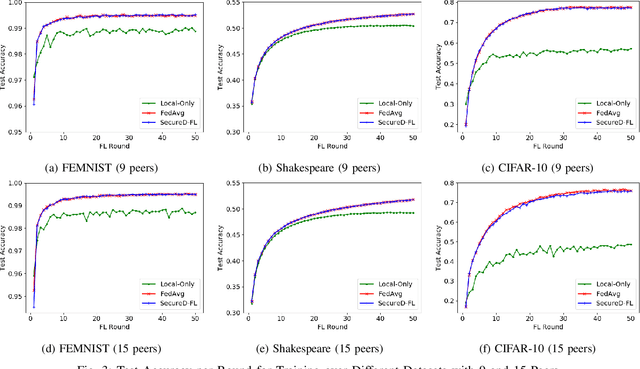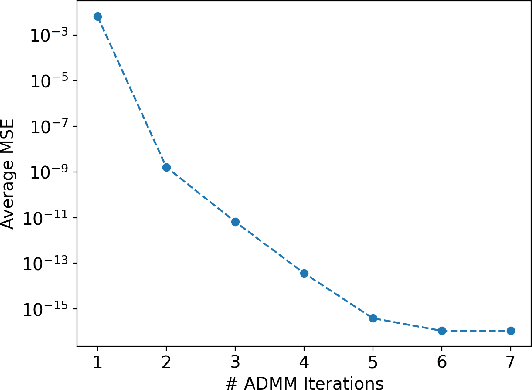S. M. Ferdous
Privacy-preserving Decentralized Aggregation for Federated Learning
Dec 28, 2020



Abstract:Federated learning is a promising framework for learning over decentralized data spanning multiple regions. This approach avoids expensive central training data aggregation cost and can improve privacy because distributed sites do not have to reveal privacy-sensitive data. In this paper, we develop a privacy-preserving decentralized aggregation protocol for federated learning. We formulate the distributed aggregation protocol with the Alternating Direction Method of Multiplier (ADMM) and examine its privacy weakness. Unlike prior work that use Differential Privacy or homomorphic encryption for privacy, we develop a protocol that controls communication among participants in each round of aggregation to minimize privacy leakage. We establish its privacy guarantee against an honest-but-curious adversary. We also propose an efficient algorithm to construct such a communication pattern, inspired by combinatorial block design theory. Our secure aggregation protocol based on this novel group communication pattern design leads to an efficient algorithm for federated training with privacy guarantees. We evaluate our federated training algorithm on image classification and next-word prediction applications over benchmark datasets with 9 and 15 distributed sites. Evaluation results show that our algorithm performs comparably to the standard centralized federated learning method while preserving privacy; the degradation in test accuracy is only up to 0.73%.
Solving the Minimum Common String Partition Problem with the Help of Ants
May 21, 2014



Abstract:In this paper, we consider the problem of finding a minimum common partition of two strings. The problem has its application in genome comparison. As it is an NP-hard, discrete combinatorial optimization problem, we employ a metaheuristic technique, namely, MAX-MIN ant system to solve this problem. To achieve better efficiency we first map the problem instance into a special kind of graph. Subsequently, we employ a MAX-MIN ant system to achieve high quality solutions for the problem. Experimental results show the superiority of our algorithm in comparison with the state of art algorithm in the literature. The improvement achieved is also justified by standard statistical test.
 Add to Chrome
Add to Chrome Add to Firefox
Add to Firefox Add to Edge
Add to Edge